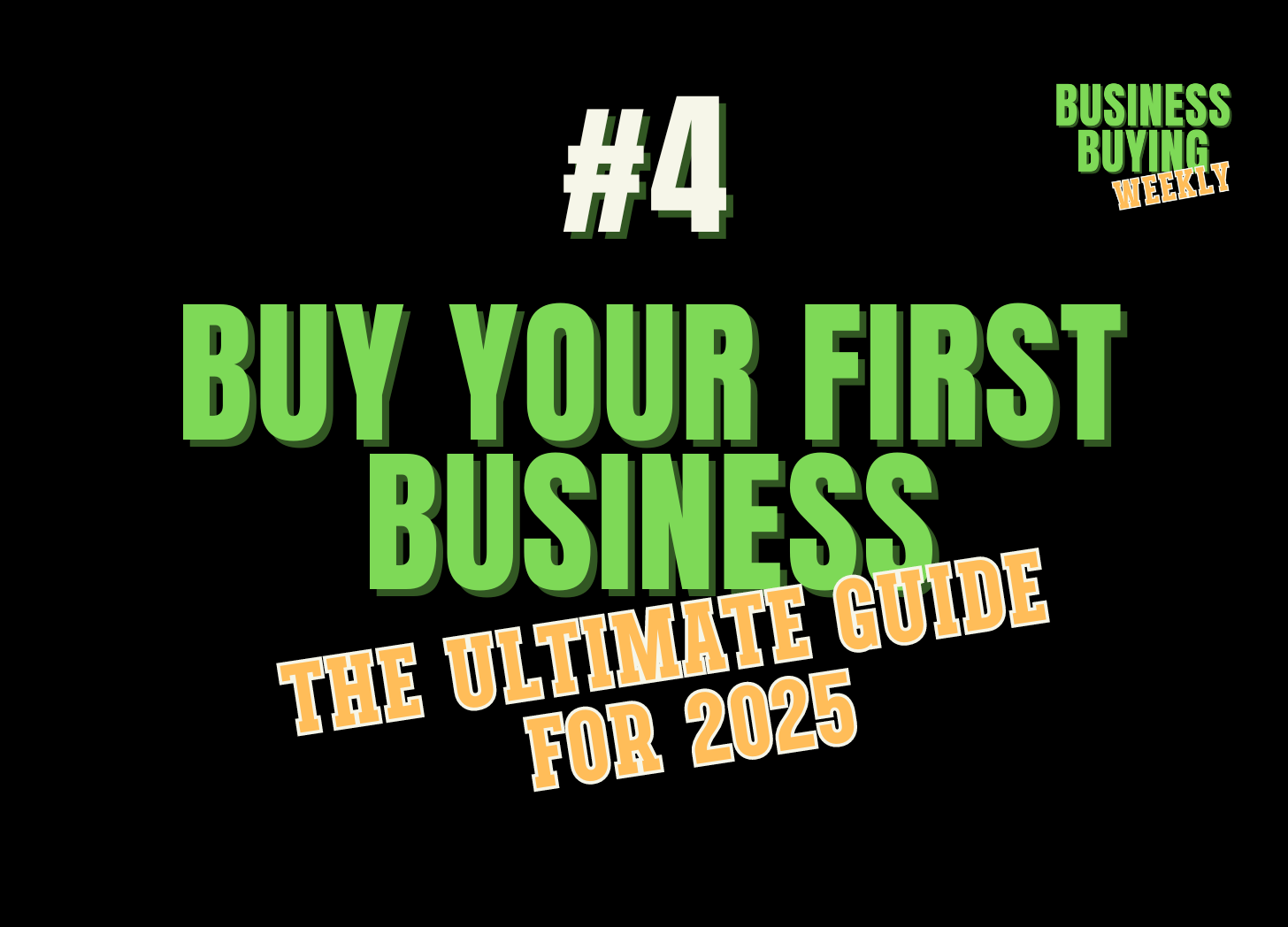Welcome to Week 4 of Business Buying Weekly! Last week, we continued our SaaS deal discussion and focused on sourcing SaaS deals.
Now, we’re going to broaden our conversation. I want to take a step back and look at buying a business as a beginner.
The process can be overwhelming. It’s one I haven’t completed myself yet — I am learning alongside you here. Think of me as the reporter providing you insight into what I’ve learned from my research.
Let’s dive in.
Want all the details? Grab the full guide on RunTheMoney.com.
Buying your first business can feel overwhelming, but with the right approach, it’s an achievable and smart way to enter entrepreneurship. Here's a quick guide on how to buy a small business for beginners.
1. Research the Right Business
Start by identifying the type of business that aligns with your skills, lifestyle, and goals. Look at both online marketplaces and offline opportunities through networking or business brokers.
2. Conduct Thorough Due Diligence
Once you've found a business you’re interested in, take the time to dig into its financials, customer base, and overall market position. Ensure the business is stable and has room for growth.
What’s due diligence? Learn more here.
3. Secure Financing
There are various ways to finance your purchase, even if you don’t have a lot of money upfront. SBA loans are popular among beginners, but seller financing or investor partnerships are also great options. Remember to explore what works best for your financial situation.
You have plenty of financing options. Be open to other ideas like these.
4. Negotiate the Deal
Negotiation is key. Work with professionals, such as attorneys and accountants, to ensure you're getting a fair deal. This includes understanding the terms of payment, potential seller support, and transition plans.
At this point — and really before this step — you need to understand how to value a business.
5. Legal and Regulatory Aspects
Before closing, make sure all licenses, contracts, and intellectual property are properly transferred. Work with a legal expert to review everything.
6. Execute a Transition Plan
After the sale, focus on maintaining operations and relationships with employees and customers. A smooth transition sets you up for long-term success.
Want to dive deeper? Check out the full guide I put together for a comprehensive step-by-step process to buying your first business. From financing to legal tips, it’s everything you need to know as a first-time buyer.
Looking to buy an online business? Try Flippa!
Flippa makes it easy to buy businesses — providing you with the tools and expertise to buy a company that suits you. Flippa has over 2,000 new monthly listings — with validated and verified data so you can do your due diligence. They also make it easy to negotiate and send offers. Why not give it a try?
Use my referral link to get started!
Connect with me!
My other newsletters:




